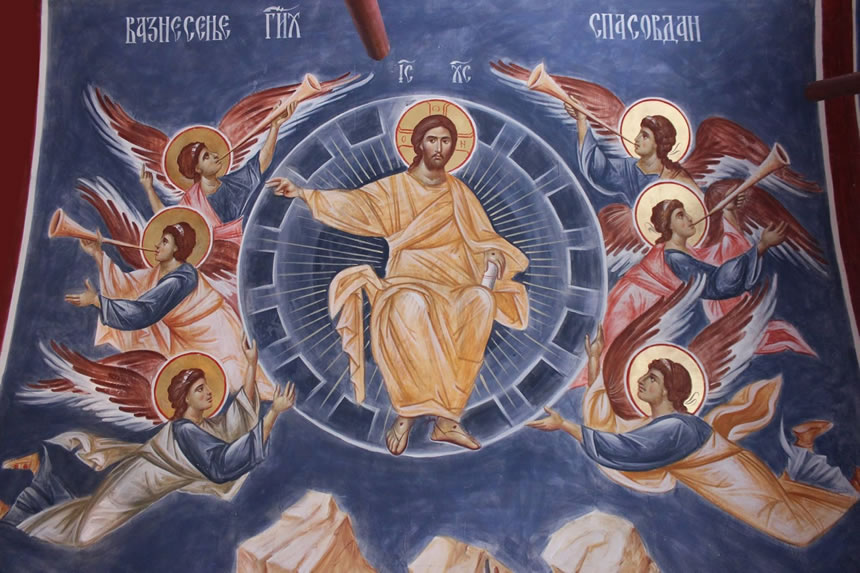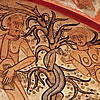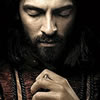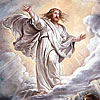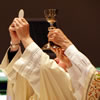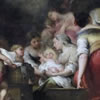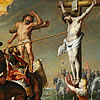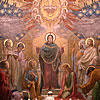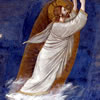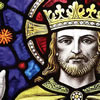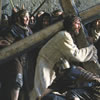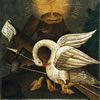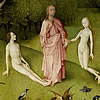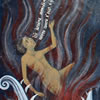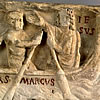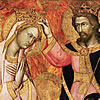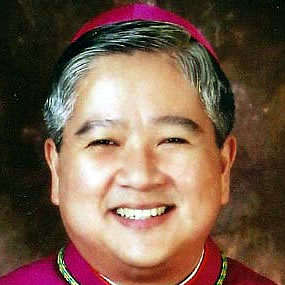A Primer on Angels
Angels are real (CCC §328). We mustn’t let strange, wild, and incredible depictions of angels (and devils) by popular media dilute our belief in them. Of course, we can enjoy stories and art depicting angels, but it would be good to ferret out what is fact from fiction. That is the objective of this article.
To begin, we know very little about the angels because very little is revealed to us about them. While the official teachings can be found in the Catechism, there is another “body of knowledge” that we hear about that isn’t official teaching, but is based largely from a consensus of theologians who have been studying the subject matter for years. One of these theologians, for example, is St. Thomas Aquinas – known as the angelic doctor because of his extensive writings about them. So in this article, we shall talk about angels and indicate which are official teachings of the Church by indicating where in the Catechism it comes from, and which are “suggested” by theologian consensus.
Angels are spirits
The Church teaches us that angels are spirits. The word “angel” means messenger because that is what they do. But if we ask what they are, then they are spirits. (CCC §329) A spirit is a simple being that does not need space. It does not have component parts that wear out, thus it can never die. (CCC §330) It is immortal in that sense.
A spirit can do three basic things. It can know, will, (CCC §330) and subsequently, love.
Theologians suggest that when God created angels, he infused knowledge of the natural world into them. This makes sense because angels don’t have material bodies to acquire knowledge. So, at the moment of their creation, angels know everything about the natural universe.
The Church teaches that each angel is a unique person in the sense that it has its own personality and free will different from that of another angel. (CCC §330) Since it has free-will, each angel can choose what it wants to do, and it can choose to love, too.
Angels were created all at once at the beginning of time.
God created, out of nothing, both the seen and unseen universe at the same time. (CCC §332) This means that when God created matter, he also created the spirit world. Mankind, who is composed of both body and spirit united, followed after at an undetermined time. (CCC §327)
Theologians think that if angels were created all at once and they are immortal, then there are a fixed number of angels. There are no new angels being created. There are no daddy and mommy angels producing baby angels. The number of angels will remain the same from the moment of creation for all eternity.
Christ is the center of the angelic world.
The Church tells us that angels were created through Christ and for Christ. (CCC §331) They were created to serve him and minister to him. We see glimpses of this when his incarnation is announced by the angel Gabriel (Luke 1:26-38), and when angels assist him during his temptation in the desert (Matthew 4:11) and in the Garden of Gethsemane (Luke 22:43).
Angelic functions and the nine choirs of angels
What the church knows from scripture is that there is a hierarchy of angels (CCC §335) that perform different functions. In Revelation 4:8, for example, there are angels that worship and praise God continually by saying“Holy holy holy is the Lord God Almighty...”. In fact, during Holy Mass, we are asked to“join in their unending hymn of praise.” (CCC §1352) So this is primarily the song of the angels, and we are just joining in. Another example of an angelic function is that they will join Christ in his glory, in the gathering of mankind, at the end of time, for the Last Judgment. (CCC §1038).
Although angels have functions and hierarchies, there is no official teaching by the Church that there are choirs of angels. What is suggested by theologians is that there are three major groups of angels each with three choirs. The task of the upper choirs is to contemplate God and his will, while the lower choirs are to execute it on the universe and on mankind. These choirs are the Seraphim, Cherubim, Thrones, Dominions, Virtues, Powers, Principalities, Archangels, and Angels.
Some angels became evil and lead men to destruction
Just like all of creation that was originally good, some angels became evil out of their own doing. (CCC §391) The church teaches us that they sinned against God by irrevocably rejecting him. (CCC §392)
The Church doesn’t tell us anymore. We are in the dark as to what this sin was. However, Theologians are in consensus of what it could be. This is what they think: God showed the angles the future when the Second Person of the Trinity would become man. This was a supernatural knowledge beyond their natural knowledge, and they could not have prepared for it. The pride in some of them was wounded for they could not stand to serve a man whose nature is lower than theirs.
This makes perfect sense because angels were made to serve the Word – the second Person of the Trinity. But this second person would become man. So when they knew they were going to serve a man, some of them could not take it and rebelled with the words, “I will not serve.” Theologians suggest one-third of the angels rebelled against this (from the number of stars swept by the dragon’s tail in Revelation 12:4).
To some, this might be convoluted thinking because the Fall of Man was the reason for God to become man. So if some angels did not become evil and tempt Adam and Eve, then there was no reason for the Incarnation. But that is to misunderstand the eternal mind of God that transcends time. We see time in a linear way: past, present, and future; but God sees all these in one, so he can see and influence the history of heaven and earth even before it happens. Furthermore, Irenaeus believed that regardless of original sin, God loved mankind so much that the incarnation would have happened anyway in different circumstances. Interesting, that thought.
To continue, it is suggested by theologians that a voice rang out from a choir of loyal angels and shouted back at the rebels, “who is like unto God?” It was St. Michael putting them in their place through a question: “do you think you are God?” (He gets his name from this because “Michael” means “who is like unto God.”) This also makes sense because the Church teaches us that the sin of Adam and Eve is but a reflection of the sin of the angels when the evil one tempted them with: “you will be like God.” (CCC §392) It is a poetic way of expressing that all sin is a desire for us to replace God with our own selves. This is because when we sin we obey ourselves instead of God, thus a refusal to acknowledge that God is God, and instead, making ourselves the law-giver instead of God.
Once the angels rebelled, a new relationship was created with God. Whereas before the rebellion the entire universe seen and unseen was in union with God, the rejection of God “created” hell – that state of self-exclusion from being with God. (CCC §1033) (So God didn’t create hell; the fallen angels did.)
God is merciful and can and will forgive the fallen angels if they repent, but the Church teaches us that the decision of the angels is irrevocable.(CCC §392) That means they cannot take it back. It is not out of their stubbornness they won’t repent, but they cannot. This makes sense because, as it was suggested earlier, God infused them with all the natural knowledge. One can change his mind when he learns he is mistaken through newly acquired knowledge. But for angels who have infused complete knowledge, there is nothing new that can be added to change their minds. The irrevocability, therefore, is an act of the will, and not a lack of knowledge. Their eternal separation, therefore, is also not a defect in the Divine mercy, but their inability to repent out of their own choice.
With hatred towards God and malice towards men, these fallen angels, we call devils, act in the world to lead us away from God and stop his reign. (CCC §394) Scripture uses the word Satan or devil to refer to the fallen angels. (CCC §391) The word Satan means “enemy” because after their fall they want to bring all of creation into rebellion with God, and consequently its destruction – thus they are branded as the “enemy of God’s people”. The word devil means “to scatter” because his goal is to scatter the people of God through his lies for he is “a liar, and the Father of lies.” (1 John 3:8, John 8:44) It is a reverse image of the Holy Spirit whose movement is to gather God’s people trough truth.
But we have to remember the devil is just another creature of God and that his power is limited. He is not an equal but evil force battling God who is a good force. There is no match if it were a boxing fight for God is infinitely powerful. We are taught by the church that God allows his diabolical activity for certain reasons we might not comprehend. (CCC §395)
The church has never officially taught us that the name of the leader of the fallen angels is Lucifer. Its use became popular after the King James bible capitalized the word lucifer to Lucifer, thus making it a proper noun. (More details on this in Jesus the Morning Star) Today it is used popularly, and idiomatically, to refer to Satan.
Angels assist the church of Christ and each one of us.
Because the Church is the mystical body of Christ, it is natural that angels assist the Church (CCC §334) for they were made for him (and his mystical body).
The Church teaches us that each of us, too, is assisted by an angel (CCC §336) which we fondly call our Guardian Angel. So angels assist each one of us in battling the devil and his temptations.
Since theologians point out that if there are a fixed number of angels from the moment of creation, that would mean that each of our guardian angels waited for us until we were born. It means God already knew we were going to exist at some future time and so he created an angel that was tailor-made to match our needs, peculiarities, and idiosyncrasies. Now that we know this, it would be rude if we didn’t try to get to know our guardian angel.
We have to be careful, though. There are some people who claim to know the name of your angel, and they will give this information to you if you pay them something. There are also some people who will perform some ritual to introduce you to your angel. These are strange activities in the Christian world (at least in Catholic tradition) because neither has it been taught to us by the apostles nor has it been traditional or customary for someone to tell you who your angel is. The best way to know your guardian angel is to converse with it. You can’t pay someone to get to know your angel – you have to personally do it. Pray to your guardian angel. Ask for guidance. Ask for help. Ask for protection. Listen when it “speaks” by following good impulses that come from praying to him. We can also ask our angels to deliver our prayers to Mary, or to Christ – that is their work. (CCC §336) We must never fear for we are surrounded by the blessed company of angels.
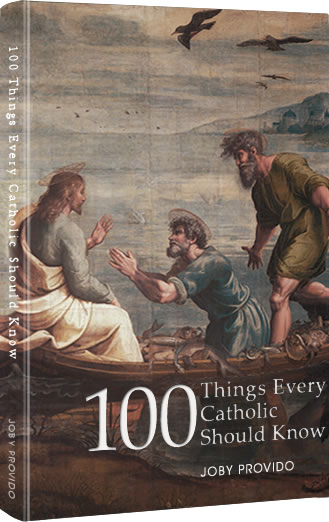
100 Things Every Catholic Should Know
Whether or not you are new to the Catholic Church, or struggling, or lapsed, or dynamically involved, this book will enlighten you with the essentials of the Faith that have been handed down to us by the apostles.
Each of the 100 topics is easy to read and distilled into bite-sized portions. Through cross-referencing, the book also shows how the topics are interrelated. Those who are new to the Faith will find this book an edifying handy reference, and those who have simply forgotten will find it a great review material that might spark a new love for God and religion.
Get your copy now either in Hardbound, Paperback, or Kindle
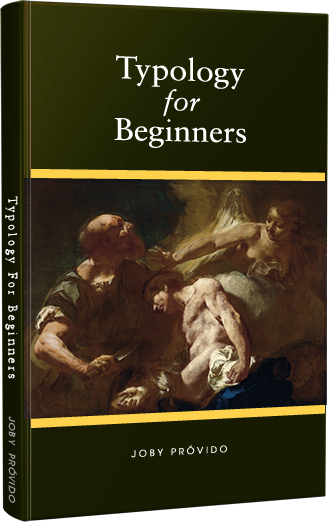
Typology for Beginners
A Catholic Perspective on understanding the New Testament through the Old Testament
First-century Jews converted to Christianity in droves because of the way the New Testament was written to show Jesus was the Messiah promised by the Old Testament. We also learn about how Mary is the New Eve and the Ark of the Covenant in the way the writers portray her.
Through typology, the patterns that connect the Old and New Testaments make the Bible stories more accessible so that one becomes excited to read Sacred Scripture again.
Get your copy now either in Hardbound, Paperback, or Kindle

A Sky Full of Stars
Know Our Lady through her Titles in the Litany
The Church helps us understand who Mary is by honoring her with different titles in the Litany of the Blessed Virgin Mary. Unfortunately, over time and difference of culture, we might not grasp what it is the Church is ascribing to her and lose that opportinity to get to know her.
In A Sky Full of Stars, each title of the Litany is explained so we get know Mary more and fall in love with her all over again.
Get your copy now either in Hardbound, Paperback, or Kindle
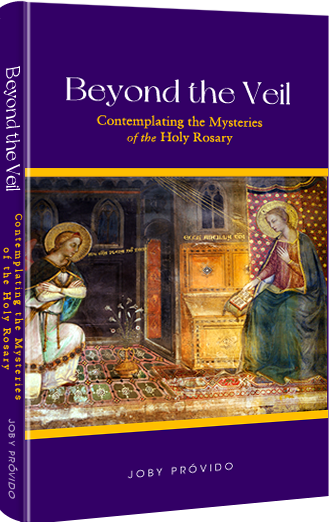
Beyond the Veil
Contemplating the Mysteries of the Holy Rosary
Prayer giants like Pope St. John Paul II, Pope Paul VI, Bl. Archbishop Fulton Sheen, and Bishop Robert Baron advocate that we contemplate on the mysteries of the rosary while we say the vocal prayers. Unfortunately, there are not many books that teach us how to do this. Beyond the Veil comes to the rescue by suggesting seven ways we can pray the rosary the way it was intended.
The larger part of the book offers mental images for each of the mysteries we can use in our contemplation, for how can we imagine the scenes in the rosary if we don't know about them?
Get your copy now either in Hardbound, Paperback, or Kindle


